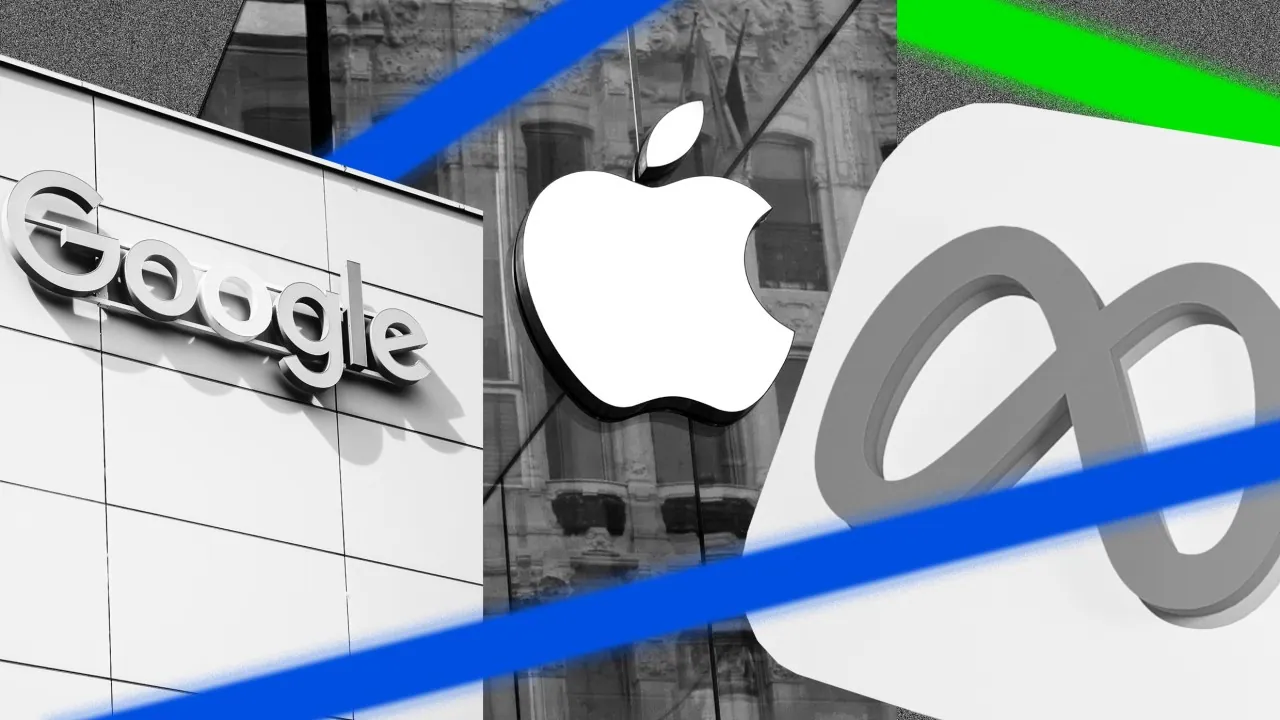Introduction
In recent years, the European Union (EU) has been increasingly assertive in its efforts to rein in the power and influence of Big Tech companies. With investigations into industry giants like Apple, Meta (formerly Facebook), and Alphabet (Google’s parent company), the EU is signaling a strong stance against monopolistic practices and anticompetitive behavior.
As these investigations unfold, the potential consequences for both the tech companies and consumers are significant and far-reaching.
Follow us on Linkedin for everything around Semiconductors & AI
Compliance vs. Fines: A Balancing Act
One of the most immediate concerns for Big Tech companies facing EU investigations is the potential for hefty fines. Under EU competition law, fines can reach up to 10% of a company’s global revenue. For tech giants with multi-billion-dollar turnovers, such penalties could amount to astronomical sums. Consequently, these companies are likely to prioritize compliance with EU regulations to avoid facing such punitive measures.
However, achieving compliance may not be straightforward. The EU’s Digital Markets Act (DMA) and other regulatory frameworks are designed to address specific concerns regarding market dominance and anti-competitive behavior. This could necessitate significant operational changes and restructuring within the companies under investigation. Nevertheless, the threat of substantial fines provides a powerful incentive for Big Tech firms to adapt their practices to align with EU regulations.
Read More: 90% Less Expensive: China to Release 14 nm Chip Worth $140 to Compete with Nvidia – techovedas
Level Playing Field for Smaller Businesses
Central to the EU’s regulatory efforts is the aim of fostering a more level playing field in the digital market. Small and medium-sized enterprises (SMEs) often struggle to compete with the dominant market positions of tech giants, which can stifle innovation and limit consumer choice. Through its investigations, the EU seeks to identify and address barriers to competition created by these companies.
If the investigations reveal evidence of anti-competitive behavior or market manipulation, the EU may impose remedies to rectify the situation. This could include measures to open up access to platforms and data, promote interoperability, or enforce fairer competition practices. By doing so, the EU aims to create a more dynamic and competitive digital ecosystem that benefits not only SMEs but also consumers.
Read More: How Chaotic Were the First Six Months of NVIDIA Ft. Jensen Huang, CEO
What is the Investigation about ?
Here’s a deeper dive into the specific areas the EU is investigating regarding Apple, Meta, and Alphabet under the Digital Markets Act (DMA):
Apple:
- App Store Steering: Did Apple’s changes to allow developers to steer users outside the App Store for downloads truly comply with the DMA? The EU might be concerned that the process is still too cumbersome or restricted.
- Safari Web Browser Choice: The investigation might explore whether Apple’s design for the web browser choice screen makes it difficult for users to easily switch from Safari to a different browser.
Meta (formerly Facebook):
- “Pay or Consent” Model: The EU wants to assess if Meta’s approach where users can choose to “pay or consent” to data collection adheres to the DMA’s requirement for explicit user consent for data usage.
Alphabet (Google):
- Self-Preferencing in Search: The investigation focuses on whether Google prioritizes its own search services (like Google Shopping) over similar services from competitors in search results.
- App Store Steering in Google Play: Similar to Apple, the EU might be looking into whether Google Play’s changes regarding app developer steering comply with the DMA’s requirements for allowing users to download apps outside the Play Store.
Additionally:
The EU is also conducting investigatory steps to see if:
- Apple’s New Fee Structure for Alternative App Stores: This refers to any fees or restrictions Apple might have imposed on developers using alternative app stores or sideloading apps (downloading them directly from the web).
- Amazon’s Ranking Practices: The EU might be examining whether Amazon prioritizes its own brand products in search results on its marketplace, potentially giving them an unfair advantage.
It’s important to note that these are just the initial investigations. The EU aims to complete them within 12 months. The final outcome could involve:
- The companies being cleared of any wrongdoing.
- The companies being required to make changes to their practices to comply with the DMA.
- The EU imposing fines of up to 10% of global annual revenue for non-compliance, or even 20% for repeat offenders.
Read More: IIT Tirupati Offers Summer Internship 2024: Monthly Stipend and Free Accomodation – techovedas
Impact on Consumers: Empowering Choice and Data Privacy
At the heart of the EU’s investigations into Big Tech is the protection of consumer interests, particularly regarding user choice and data privacy.
Additionally,Concerns have been raised about the dominance of certain platforms and the potential for these companies to abuse their position to limit competition and exploit user data.
If the investigations uncover evidence of such practices, consumers can expect to see changes aimed at enhancing their rights and options. For example, greater transparency and control over data usage, improved interoperability between platforms, and increased choice in selecting default apps or services could become standard features of digital ecosystems.
Furthermore, the EU’s actions may set a precedent for regulatory efforts worldwide, influencing the approach of other jurisdictions toward Big Tech regulation. As such, the consequences of these investigations extend beyond the borders of the EU, shaping the future landscape of the global tech industry.
Conclusion:
The EU’s investigations into Big Tech represent a significant development in the ongoing debate over digital regulation and competition. As these investigations progress, the consequences for both tech companies and consumers will become increasingly apparent. While compliance with EU regulations may present challenges for Big Tech firms, the potential benefits in terms of fostering competition, empowering consumers, and shaping the future of the digital economy are considerable. By navigating the regulatory landscape effectively, both companies and consumers stand to gain from a more transparent, competitive, and innovative digital marketplace.



